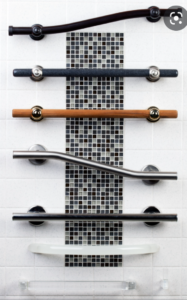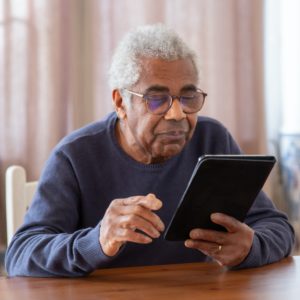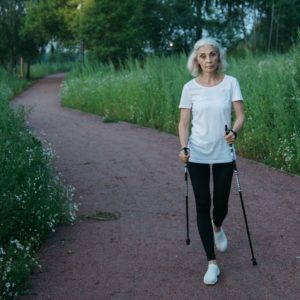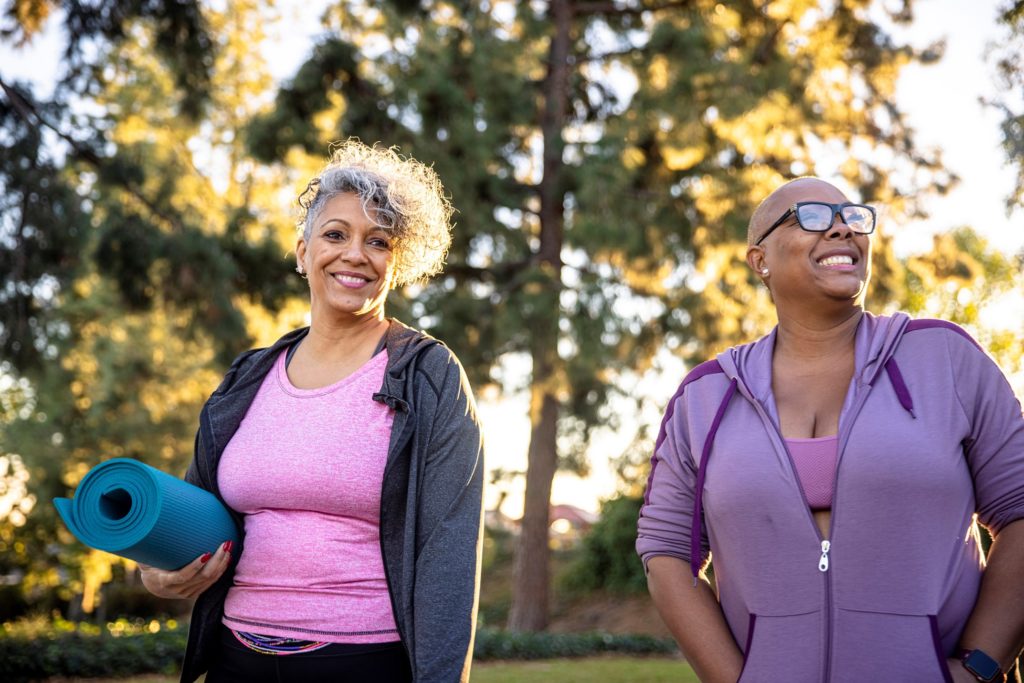Celebrate Senior Independence Month by Making Small Changes
Living an independent lifestyle is essential to many of us as we age, no matter your age or where you live. In February each year, we celebrate seniors staying independent and remaining in control of their daily lives. Everyone needs a boost occasionally, so we encourage seniors to evaluate their current living situation and determine if minor physical and psychological adjustments can be made to create a better lifestyle. Here are a few tips to help you stay comfortable, safe, and healthy this month and throughout the year.
 Make a few upgrades
Make a few upgrades
There are expensive house upgrades like ramps and elevators, but there are smaller projects that you can start on. If you don’t already have grab bars in your bathroom, it’s time to install them, even if you don’t need them right now. Grab bars come in many styles to accommodate any layout or design. Also, check the railings on your stairs which can come loose from years of use and pose a risk. Add motion-sensor stick-on lights in dark hallways or closets. The NIH National Institute on Aging has a website dedicated to aging-in-place and growing older at home. AARP offers another 9 low-cost safety tips, and DailyCaring shares 13 Home & Kitchen Fixes in One Day. Another option is to hire a service like TruBlue Total Home Care to help with the upkeep of your home as you age.
Declutter
Cleaning and organizing can have a tremendous positive impact on your physical and mental health. Decluttering has many advantages. It may reduce stress and depression and help you sleep better. It can also help you eat better, lose weight, and stick to your workouts. It can improve relationships and boost your productivity. Seniors have told us that decluttering is energizing and feels good because you know you won’t be burdening your family with the task. Another benefit of decluttering is moving freely without fear of tripping and falling. Clearing walkways and rearranging furniture are other ways to ensure safety and comfort. If you didn’t get around to decluttering last month, make this month the one to start. There are different systems for decluttering, so find the one that’s right for you and your living situation. Here are 27 Tips for Decluttering and Best Decluttering Advice We’ve Heard. You can also hire a senior move manager to help with downsizing and decluttering.
Take advantage of technology
These five technologies are a good starting point for seniors living independently. A security system protects against theft and property damage and may include features like outdoor motion light sensors to help you see and fend off unwanted guests. In addition to home security systems, indoor monitoring services can share a wealth of information for a long-distance caregiver, including data about movement patterns, medication usage, toileting, and contact engagement. Cell phones and tablets also contribute to safety. Phones often have emergency contact apps and serve as location devices, and tablets are suitable for daily check-ins via Zoom or FaceTime. SeniorLiving.org offers the Best Communication Apps for Seniors and here are 5 Tips for Navigating New Gadgets. Another safety issue is taking needed medications regularly. Medication dispensing systems can aid with this. Finally, wearable health-tracking gadgets assist seniors who want to stay active because they offer reminders and goal-setting. AgingCare.com has many other suggestions about the types of technology that benefit seniors living independently.
Stay social
Telephone and online check-ins with family and friends are currently necessary. When it’s safe to do so again, meeting up in person is another great social to stay social. Neighborhood, church, and social groups are great ways to stay engaged. Another outlet to consider is senior centers that provide age-positive programming to enrich and prolong the lives of older adults, allowing them more independence. Research from the National Council on Aging shows that senior center participants have higher health, social interaction, and life satisfaction than their peers. And it’s not all about going to the senior center. For example, telephone reassurance programs, intergenerational connections, activities for seniors with physical or cognitive impairments, and special meal or companion programs are innovative ways senior centers work with local populations. Seniors can also volunteer at their local center, creating purpose, a hallmark of independent living. There is also electronic companionship like ElliQ.
 Be active
Be active
Staying active is a significant factor in maintaining independence for older adults. According to a CDC report, exercise prevents disease, reduces the risk of falls, improves cognitive function, and supports positive well-being in seniors. Staying active can prevent accidents and promote independence by keeping the muscles moving and alive. Regular physical activity can also boost self-confidence and make other activities more manageable. Both indoor and outdoor walking clubs are an excellent way to be active with others. When the weather is agreeable, ask family and community members to take walks together where you can provide encouragement, education, and companionship, again creating purpose and healthy routines. On inclement days, there are also easy-to-use strength and balance apps like JinHome.
Evaluate decision-making skills
“How do you make decisions that will give you the best chance of getting the best possible outcome for your family, your health, and your wealth through the years ahead?” asks SEIA Senior Partner Tom West. Senior Independence Month is an opportunity to explore your strengths and weaknesses in daily routines and make minor adjustments with potentially huge improvements. If you are currently a good decision-maker, it’s essential to ask yourself if your decision-making is likely to stay the same. And if it changes, ask yourself if you have a good support network in place that can give you the highest probability of getting outcomes consistent with your values. Tom shares, “The best decision-makers out there already know their weaknesses and have communicated them. They are more ready to round out the resources around them to support themselves.”
LCAP supports your independence
Knowing what to hold onto, what new technology and systems to embrace, and what to let go of is a tough road to navigate, especially for someone who has lived independently for many years. Giving up a driver’s license or accepting in-home help is another big step for many seniors. And leaving home to move into a senior community is an even more significant step. All these stages need to be celebrated, much like going off to college, as a positive life change to improve your independence.
With over 25 years of experience working with seniors and their families, our staff at the Lifecare Affordability Plan understands that maintaining independence can be tricky for seniors. Asking for and receiving support when needed is a positive step toward staying independent because only you can decide what independence means to you. When changes need to happen, the LCAP team is here to help you make good decisions, maintain independence, and increase your quality of life.
Want more ideas for living independently?
Here are some additional resources.
- Association for Long Term Care Planning: 15 Insider Tips for Independent Senior Living
- Miami Home Care Services: How Home Care Aide Services Can Help Aging at Home
- Benedictine Living: It’s Never Too Late to Start Aging Well
- Senior Safety Advice: National Senior Independence Month
- “Smart Aging” Technologies Make Seniors’ Lives Simpler, Safer and More Social
